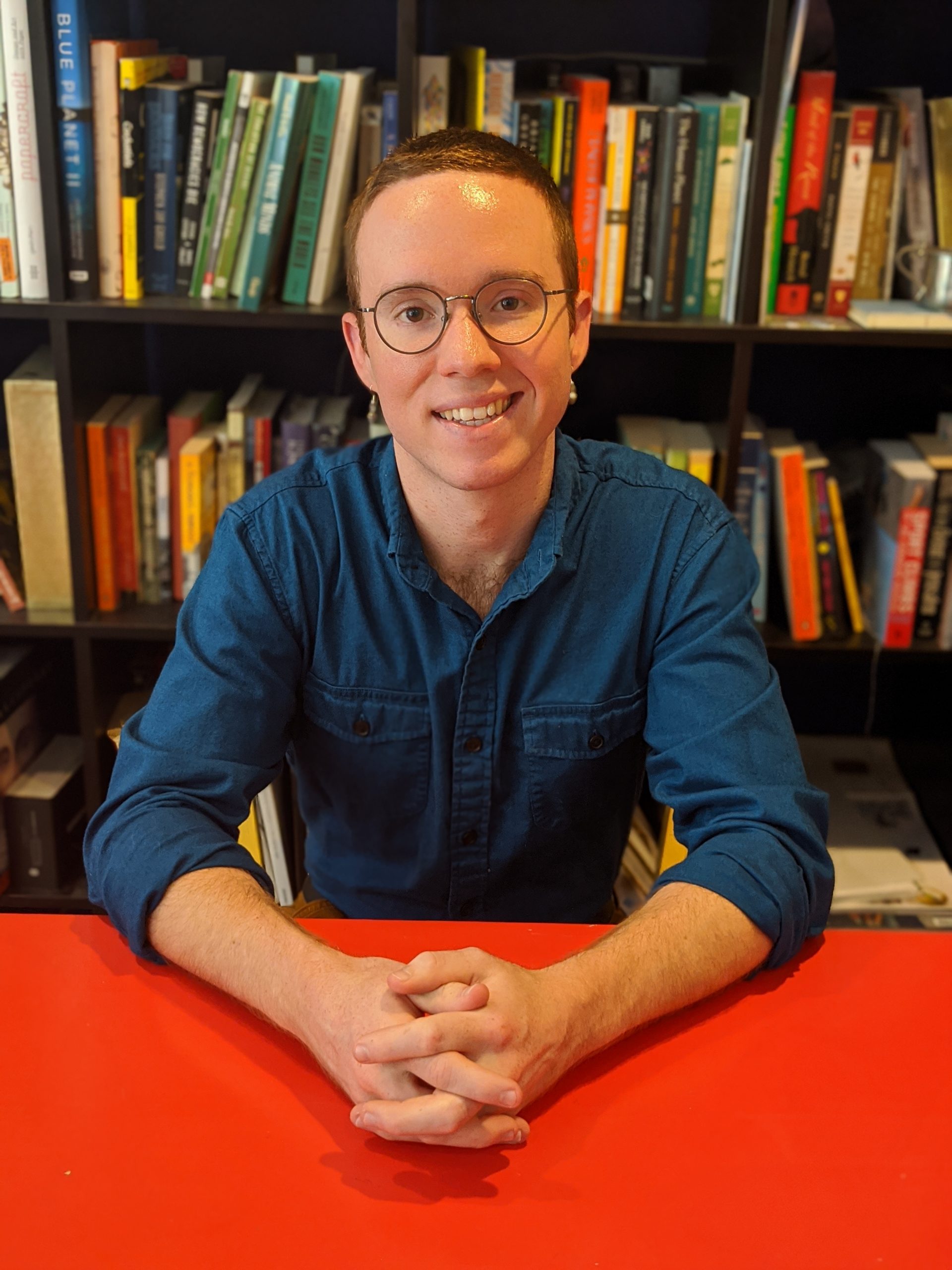Faces of ESLR: Mason Youngblood
When I started my PhD at the City University of New York in 2015, I had my heart set on studying the behavioral neuroscience of birdsong. The following year my PhD advisor, David Lahti, invited me to collaborate on a quantitative review of cultural evolution. This project was my first time exploring the diversity and depth of the field, and I was immediately hooked. After having an incredible experience at the inaugural conference of the Cultural Evolution Society in 2017, I decided to pivot away from behavioral neuroscience and towards computational approaches to cultural evolution.
Since then, I’ve put my energy towards understanding how cognitive processes that influence cultural transmission between individuals, such as biases in social learning, scale-up to affect cultural evolution at the population-level in both humans and animals. My animal work has focused on the cultural evolution of birdsong in house finches, a species that was introduced to the eastern United States from the west coast around 1940. For example, I’m currently trying to figure out which forms of social learning bias drive changes in house finch song dialects using a longitudinal dataset of recordings spanning four decades.
My human work is a bit more broad, but focused on music and extremism. Music sampling, or the use of previously recorded material in new compositions, is an extremely common practice among hip-hop and electronic music producers. In a pair of studies published in 2019 I established that music samples are culturally transmitted between artists when they collaborate with one another, and that conformity bias among artists drives patterns of sampling at the population-level. More recently I applied modeling techniques from epidemiology to study the spread of far-right extremism in the United States over the last decade, while controlling for changing demographic and socioeconomic conditions.
As a postdoc, I will continue doing work on the cultural evolution of music and extremism while branching out into other models like literature and graphic codes. I’m extremely excited to be doing this research with Olivier Morin’s Minds and Traditions group at the Max Planck Institute for the Science of Human History, which hosted the 2017 conference that convinced me to pursue cultural evolution in the first place. Ultimately, I hope to establish popular music as one of the primary research models for mechanisms of cultural evolution in the digital age.
Outside of research I’m most passionate about electronic music and rock climbing. I’ve been producing and DJing electronic music since 2013, and the experimental club community has been hugely important to me during my time in NYC. I’ve been rock climbing casually for about the same time, but in the last two years my climbing partner and I have been getting a little more serious about lead climbing outside.
Feel free to email me or DM me on Twitter if you have any questions about my research or just want to chat!
About the author
Mason is a PhD candidate in Animal Behavior and Comparative Psychology at the City University of New York, and an incoming postdoctoral researcher at the Max Planck Institute for the Science of Human History. His research is focused on cultural evolution in both human and animals, including studies on birdsong, metascience, music, and extremism. Specifically, Mason uses computational methods like agent-based modeling and machine learning to better understand how mechanisms of cultural transmission affect larger patterns in the cultural evolution of populations.
